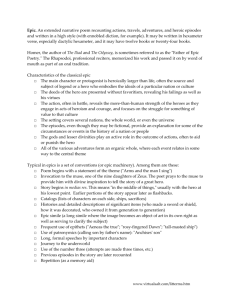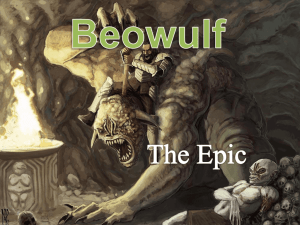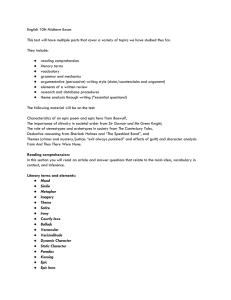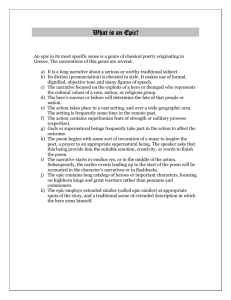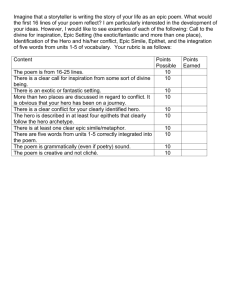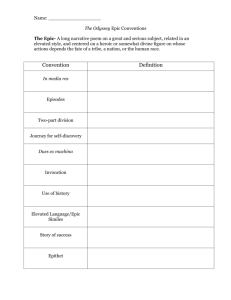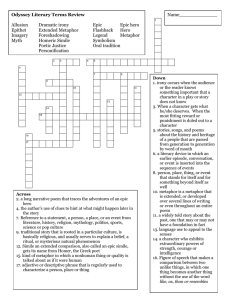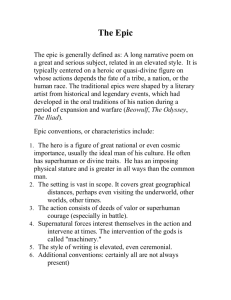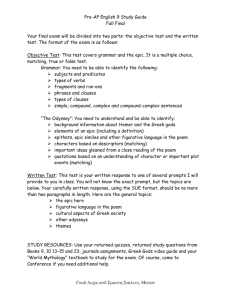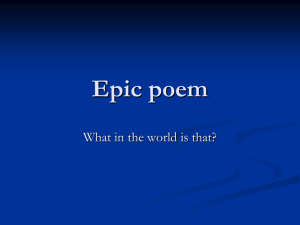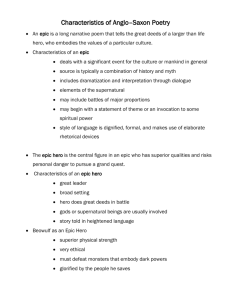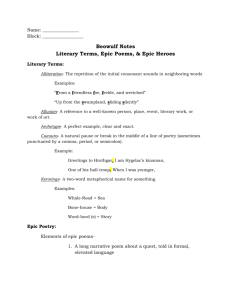“What defines EPIC” HANDOUT
advertisement
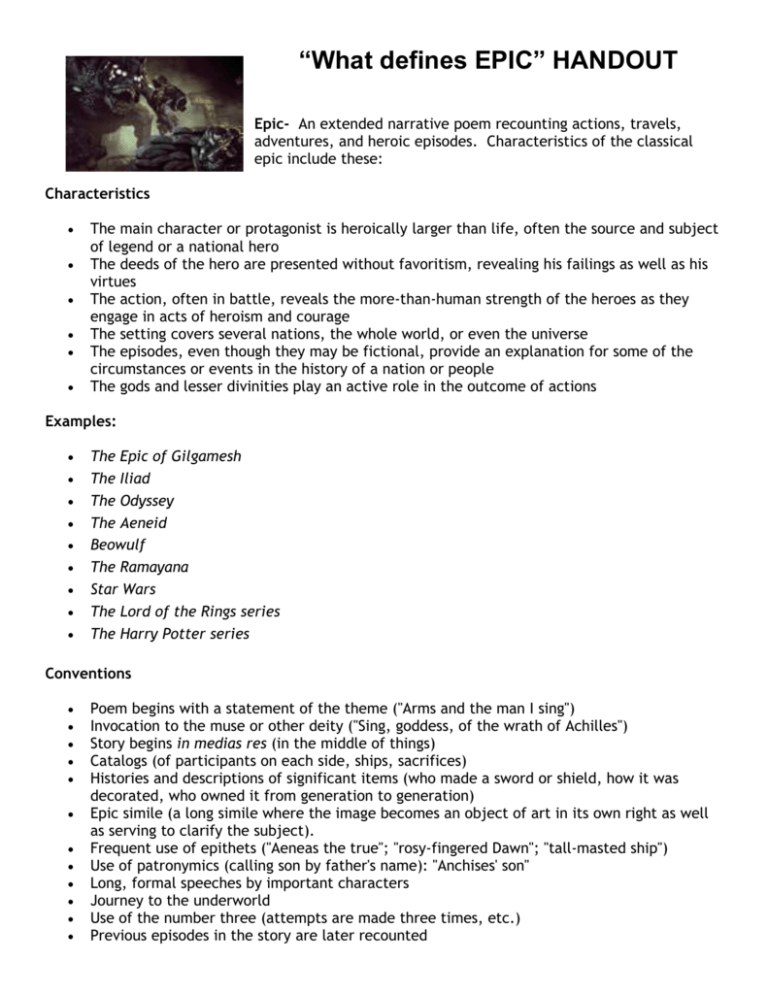
“What defines EPIC” HANDOUT Epic- An extended narrative poem recounting actions, travels, adventures, and heroic episodes. Characteristics of the classical epic include these: Characteristics • • • • • • The main character or protagonist is heroically larger than life, often the source and subject of legend or a national hero The deeds of the hero are presented without favoritism, revealing his failings as well as his virtues The action, often in battle, reveals the more-than-human strength of the heroes as they engage in acts of heroism and courage The setting covers several nations, the whole world, or even the universe The episodes, even though they may be fictional, provide an explanation for some of the circumstances or events in the history of a nation or people The gods and lesser divinities play an active role in the outcome of actions Examples: • • • • • • • • • The Epic of Gilgamesh The Iliad The Odyssey The Aeneid Beowulf The Ramayana Star Wars The Lord of the Rings series The Harry Potter series Conventions • • • • • • • • • • • • Poem begins with a statement of the theme ("Arms and the man I sing") Invocation to the muse or other deity ("Sing, goddess, of the wrath of Achilles") Story begins in medias res (in the middle of things) Catalogs (of participants on each side, ships, sacrifices) Histories and descriptions of significant items (who made a sword or shield, how it was decorated, who owned it from generation to generation) Epic simile (a long simile where the image becomes an object of art in its own right as well as serving to clarify the subject). Frequent use of epithets ("Aeneas the true"; "rosy-fingered Dawn"; "tall-masted ship") Use of patronymics (calling son by father's name): "Anchises' son" Long, formal speeches by important characters Journey to the underworld Use of the number three (attempts are made three times, etc.) Previous episodes in the story are later recounted
